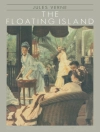In ‘A Country Gentleman and His Family, ‘ Mrs. Oliphant presents a rich tapestry of rural life, artfully weaving the intricate dynamics of family, social status, and moral obligation. Set against the backdrop of Victorian England, the narrative employs a realist style, marked by Oliphant’s nuanced character development and sharp observations of provincial society. The story revolves around the central character, a gentleman grappling with the challenges of family responsibilities and societal expectations, reflecting the author’s keen interest in the complexities of human relationships and moral dilemmas pervasive in her time. Mrs. Oliphant, a prominent Victorian novelist, was a notable figure in the literary landscape, well-versed in the intricacies of gender and social class issues. Her own experiences, including the challenges of widowhood and raising a family, deeply influenced her portrayal of familial bonds and moral conflicts in this work. Having witnessed the changing social fabric of her era, Oliphant’s insights are rooted in both personal and broader societal contexts, as she often illuminated the undercurrents of domestic life in her narratives. This book is a compelling read for those interested in Victorian literature, offering not just a glimpse into the period’s ethos but also engaging with timeless themes of duty and familial love. Readers seeking a profound exploration of societal norms and moral quandaries will find in Oliphant’s elegant prose a timeless reflection on the human condition.
เกี่ยวกับผู้แต่ง
Mrs. Margaret Oliphant (née Wilson, 1828–1897) was a prolific Scottish novelist and historical writer, who usually wrote as Mrs. Oliphant. Her remarkable literary career spanned over four decades, during which she penned more than 120 works, encompassing fiction, history, and biography. She was particularly adept at portraying the nuances of domestic life and the complexities of women’s experiences in her era. ‘A Country Gentleman and His Family’ is but one example of her elaborate exploration of family dynamics and societal expectations. Oliphant’s literary style is characterized by its clever discourse and insightful depiction of character, enabling readers to navigate the Victorian social milieu with her often satirical yet empathetic guide. Dynamics of tradition versus change were a common thread in her works, encapsulating the evolving landscape of nineteenth-century Britain. By weaving intricate tales that often challenged societal norms, especially those pertaining to women, Mrs. Oliphant cemented her legacy as a keen observer and chronicler of Victorian life. Despite facing personal tragedies, including the loss of her husband and children, her writing remained prolific and steadfast, offering a window into the resilience of a woman who was as complex and enduring as the characters she created.












